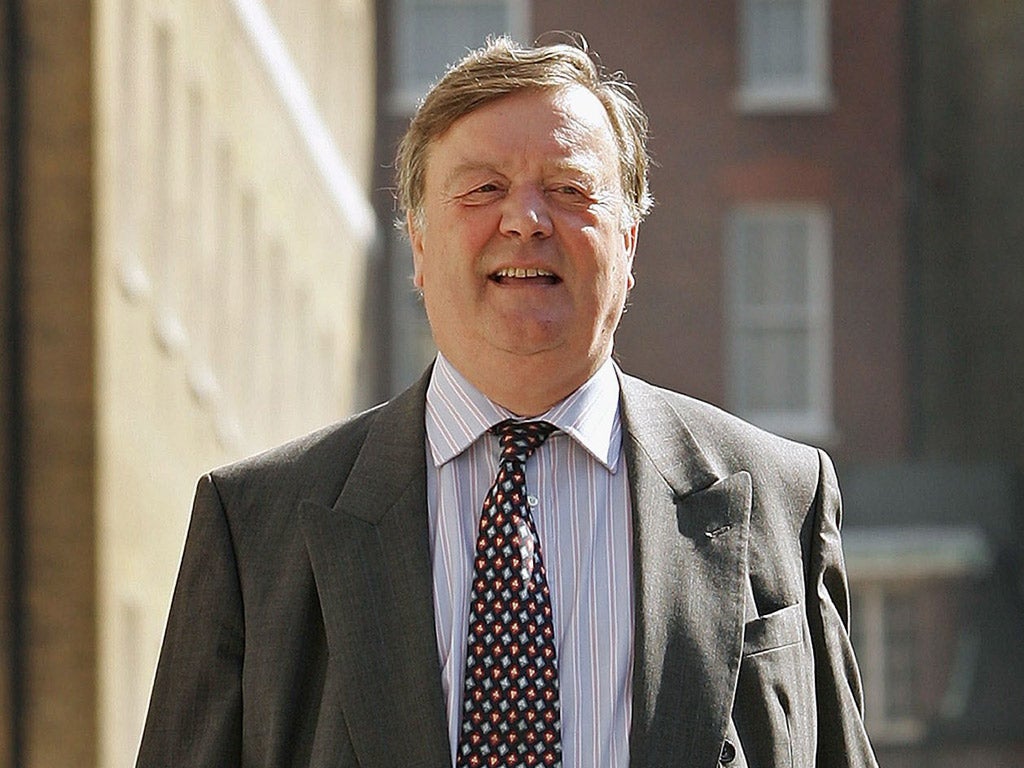Ken Clark warns Eurosceptics: You'll wreck the biggest bilateral trade deal in history by demanding the UK leaves the EU

Ken Clarke has warned Eurosceptics that they risk wrecking the “biggest bilateral trade deal in history” by demanding the UK leave the EU.
The Conservative Cabinet minister, who is famously pro-Europe, said British benefits from a proposed US-EU trade deal would be “curtains” if the UK were to step down from its leading role in negotiations by leaving the European Union.
The minister without portfolio said it was the UK's membership of the EU that made it a key player in negotiations with Barack Obama's administration in Washington and cautioned against demands for “Brexit” - a British exit from the organisation.
Writing in The Daily Telegraph, he said: “It is of course the EU that is making deals with America and Canada possible. It should come as no surprise that President Obama's officials have commented that they would have 'very little appetite' for a deal with the British alone.
“Quite simply, the political commitment and dedication that the creation of a free market encompassing over 800 million people, 47 per cent of world GDP, and boosting the combined economies of the EU and the US by nearly £180 billion, could only ever be made by the leaders of evenly matched economic blocs.”
Mr Clarke said despite the “romantic” notion of the UK leaving the EU and joining the North American Free Trade Agreement, Britons were “a practical race”.
He said: “That 'Brexit' would mean curtains for our ability to have any leadership role in world-defining plays like these free-trade agreements would greatly disturb us.
“Accepting a diminished situation in which the UK is forced to trade by EU rules which it has had no say in setting is simply not in our nature.
“That is why there was such admiration for the European role that Mrs Thatcher played as PM: handbag swinging, never giving in, never giving up, she alternately charmed and cajoled Europe into the reforms which she saw were so clearly needed.”
He said the trade deals being championed by Mr Cameron were “positively Thatcherite” and praised his efforts to reform the EU to make it “an ever greater asset”.
“Because an asset it undoubtedly is,” Mr Clarke said. “The European Union amplifies our influence in the world, renders us safer, more secure, and more in control of our own destiny.
“As Germany shows, the EU can indeed be the home of powerhouse exporters who dominate global trade. The place for a powerful nation state in the world of today and tomorrow is within it, not outside it - even more so than in the 90s, when the economic giants of the East were still emerging.
“There remains an undoubted need for serious further European reform. The doom-mongers who say this will never be achieved should remember that a European-North Atlantic Free Trade Area was talked of as an unachievable dream for at least two decades.
“British leadership and lobbying means it really now could be a reality. There is plenty more that we can achieve in Europe. We must stay the course.”
Chancellor George Osborne said the renegotiation was designed to allow Britain to stay in the EU and “seek the benefits” such as negotiating trade deals.
“I don't think anyone's particularly surprised about Ken's views. He's been a long advocate of Britain's membership of the European Union,” he told BBC Breakfast.
“What David Cameron is setting out to achieve, what I am setting out to achieve and others, is a reform and a renegotiation of Britain's relationship with the European Union in order that we can stay in and seek the benefits... one of which is that you can conclude these very big trade deals with the rest of the world.
“We want the change that is right for Britain - a change, by the way, which is right for the European Union to adapt to the modern economy and be a place where we can compete with the best in the world and our companies can grow.
“That's precisely the approach the Prime Minister is taking, but ultimately the decision is going to be for the people watching this at home.
“We are going to have that referendum and the people can decide.”
MPs will give a first vote on July 5 on legislation enshrining the promise of a referendum by the end of 2017 introduced by backbencher James Wharton.
It has the strong support of Mr Cameron, who was blocked from bringing it forward as government business because of Liberal Democrat opposition within the Coalition.
Nick Clegg's party is likely to abstain and Labour has told its MPs not to vote in what it dismissed as a “political stunt”.
Mr Osborne said: “Over the next couple of months, you will see the Conservative Party making strongly the case for that referendum and promoting legislation in Parliament to make that referendum a reality.”
Subscribe to Independent Premium to bookmark this article
Want to bookmark your favourite articles and stories to read or reference later? Start your Independent Premium subscription today.

Join our commenting forum
Join thought-provoking conversations, follow other Independent readers and see their replies